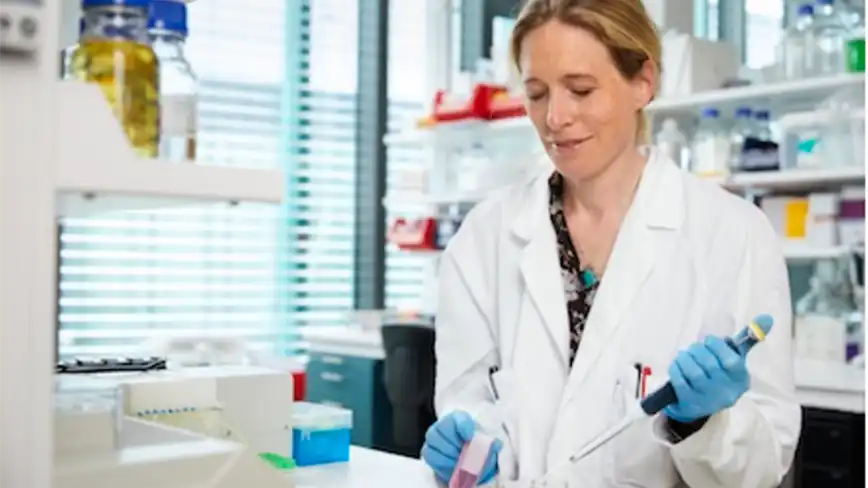The technology that makes stem cells accessible to everyone

Imagine a future where diseases such as Parkinson's and diabetes are no longer considered incurable. Where patients can receive treatments based on their own cells, minimising the risk of rejection and offering a real chance of recovery.
Professor Anna Herland and her research team at KTH are working to make this possible. By developing an automated chip system that can produce stem cells easily, quickly and at a reasonable cost, they want to pave the way for a new generation of medical treatments – available to more patients than ever before.
Technology that makes stem cells available to everyone
Anna Herland and her research team have already shown that it is possible to produce stem cells of the same high quality as in traditional laboratories, but in a cheaper and more standardised way using a chip system – a miniaturised laboratory on a chip.
The system allows cells to be grown in a controlled and closed format, which both reduces costs and makes the process more reliable. The next step is to refine and automate the technology so that each patient can have their own stem cells produced with high precision and at a cost that makes the treatment accessible to many more people.
From suffering to quality of life – benefits for patients and society
If the chip system becomes a reality, healthcare providers will be able to offer completely new treatment options for diseases that currently have no cure. This would give millions of people the chance to live healthier, longer lives, while also reducing the long-term costs of chronic diseases.
For Sweden, the project also represents an opportunity to take a leading role in international biomedical innovation and contribute to creating new standards for personalised healthcare.
